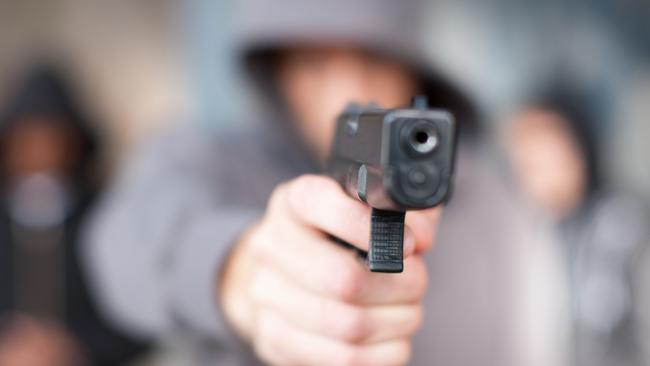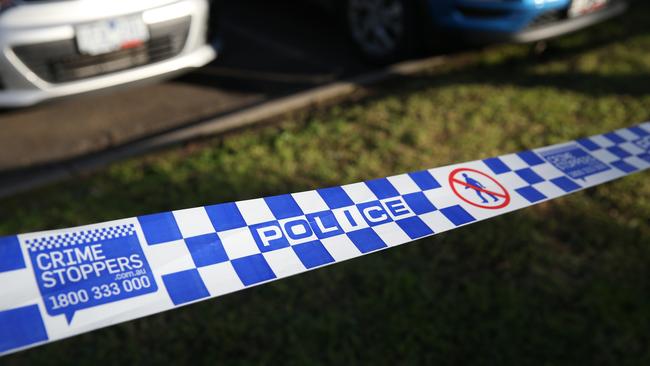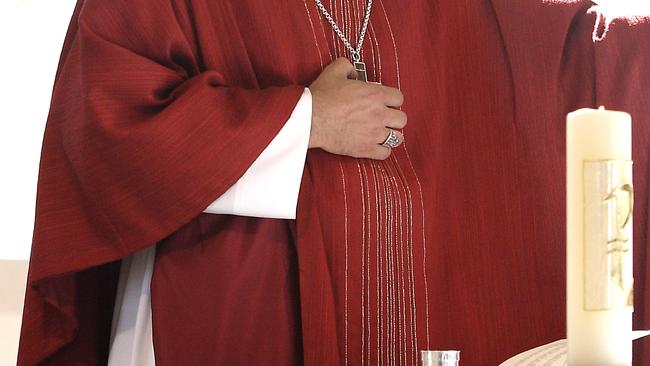Pierre Assaad jailed for hiring a $40K hit man to murder Essendon pastor Silas Issa
Pierre Assaad’s plot to have his pastor from an Essendon church murdered unravelled when the hitman he hired turned out to be an undercover police officer, a court heard.

Police & Courts
Don't miss out on the headlines from Police & Courts. Followed categories will be added to My News.
A churchgoing husband hired a hitman for $40,000 to kill his senior pastor, who he called a “shifty a---hole” and “big conman” for intervening in his marriage.
Pierre Assaad, 53, and his family were regulars at the Baptist church in Essendon, even having his five children baptised there.
But when the pastor, Silas Issa, learned Assaad was abusing his then wife at home, he intervened.
Assaad later blamed Mr Issa for his 25-year marriage ending.
He sought out a hitman, who unbeknown to him was an undercover police officer.
In recorded conversations with the covert cop, known only as “Zac”, on May 21, 2020, Assaad said he had been waiting six years for “something to be done” to the pastor.
He said he wanted Mr Issa to “disappear” because he had “broke the whole family”.
Assaad had initially met the so-called hitman at Bunnings in Craigieburn, seeking help to get rid of his ex-daughter-in-law, who he claimed was causing his son grief.

Assaad asked “Zac” whether it would be best to make the woman’s death look like an accident or that she simply disappeared.
On the undercover officer’s request, he said he would provide him with a photo of the target, as well as her address, where she worked and what type of car she drove.
But then his focus turned to Mr Issa.
He told “Zac”, when he requested the same personal details about Mr Issa, that he did not want to do any internet searches on his own devices, offering to pay him more to do his own research.
Assaad then said he would use the local library’s computers to conduct the searches and get him the information he required.
The hitman said the contract killing would cost $40,000, with a $5000 deposit to be paid upfront, and the remainder once the victim was killed.
Two weeks later on June 10, Assaad called “Zac” using a pay phone, identifying himself as “the Bunnings man” and that he wanted to meet again.
He used code words, which had been agreed between the pair, that he had “documents from the council” for him.
When the duo met up again at the same suburban Bunnings on June 14, Assaad handed over the deposit and confirmed he wanted the murder of Mr Issa to go ahead.
Four days later, police swooped and arrested Assaad, finding “Zac’s” business card and $16,900 cash inside his wallet.
The shocking details of the attempted hired assassination emerged as Assaad pleaded guilty in the Supreme Court on Tuesday to inciting murder.

Defence barrister Rishi Nathwani said his client’s intention was never to have someone killed, accusing the covert officer of planting the idea in Assaad’s mind.
“It’s quite clear when he met the covert operative that he wanted something else,” Mr Nathwani said.
He said the recorded conversation reveals Assaad asking “Zac” if there was a way they could kick his son’s estranged wife out of the country, as she didn’t have citizenship.
The officer then indicates that approach “will take a bit of time”, before suggesting he could have her killed when Assaad asked, “What other options are there?”.
Mr Nathwani said the plan then changed from the woman to Mr Issa.
Mr Issa, in reading out a victim impact statement to the court, said he suffered high anxiety and depression since learning Assaad wanted him killed.
“When I signed up to be a pastor of a church in Melbourne years ago, I did so to help people with a passion for families,” Mr Issa said.
“Whenever domestic violence and sexual abuse came up, I took the strongest measures.
“I never thought this will one day lead to a crime committed against me.”
The court heard Assaad’s criminal history was limited to two convictions: one relating to violence against his ex-wife, and another over an illegal tobacco haul.
Justice Michael Croucher jailed him for five years, but set a non-parole period of 2 ½ years, meaning he is expected to walk free from jail within days.
rebekah.cavanagh@news.com.au





